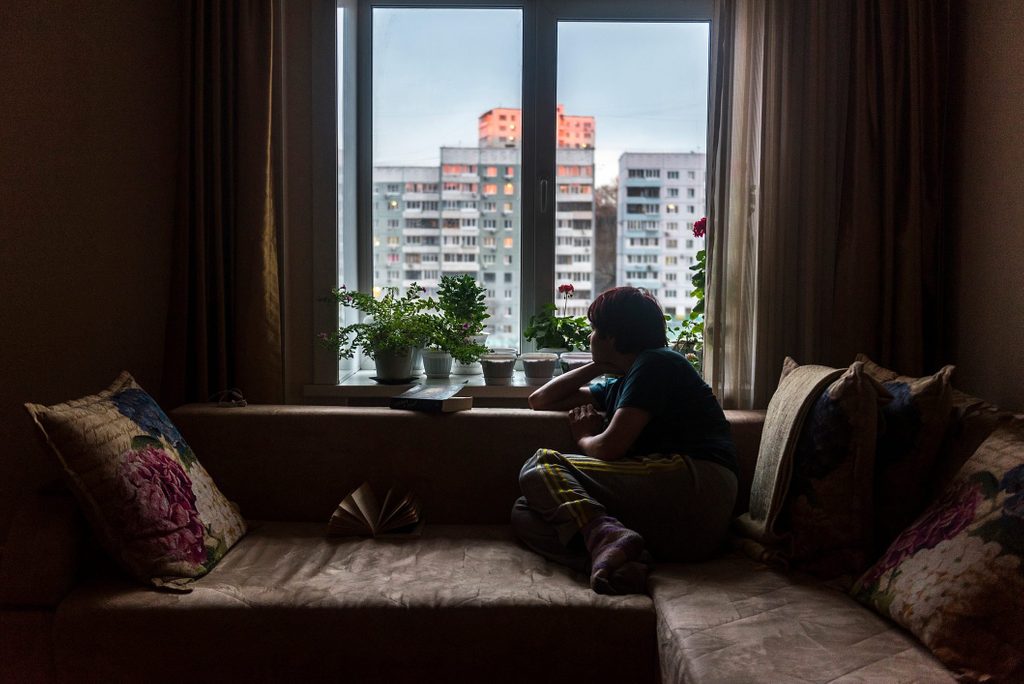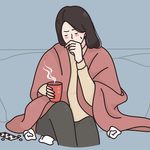Does Covid-19 Raise Your Risk of Mental Illness?

Undoubtedly, the pandemic has led to higher levels of stress and anxiety, but for some Covid-19 patients, recovery may also bring mental health problems.
There’s no question the coronavirus pandemic has taken a toll on our mental health. One recent poll by CAMH found that 50 percent of Canadians feel their mental health has gotten worse since the pandemic began.
But the relationship between Covid-19 and mental health—even diagnosed mental illness—goes deeper than that, new research shows. A study published in a November 2020 issue of The Lancet Psychiatry suggests there’s a two-way relationship between Covid-19 and mental illness.
“If you got Covid-19, you were more likely to have a psychiatric disorder [after],” says Jeffrey Geller, MD, president of the American Psychiatric Association. (He was not involved in the research.) “But, equally important, if you had a psychiatric disorder in the prior year, you were more likely to get Covid-19.”
Here’s what experts want you to know about the relationship between Covid-19 and mental illness.
(Related: 3 Tips to Help You Cope With Covid-19 Anxiety)
Why the research was done
Surveys have reported increased anxiety (even post-traumatic stress disorder) and depression (including low-grade depression) since Covid-19. But most have relied on patients’ own accounts of their symptoms rather than actual diagnoses.
And while experts know quite a bit about the physical risk factors for severe Covid-19 illness and death (such as age and heart disease), no previous research has looked at psychiatric risk factors.
Nor have studies looked at whether people with Covid-19 are more likely to be diagnosed with a psychiatric condition after their diagnosis. The authors of the new study set out to answer these questions.
(Related: What Is Doomscrolling? What Psychologists Need You to Know)
How the study was conducted
The researchers looked at the electronic health records of close to 70 million people in the U.S., almost 63,000 of whom had been diagnosed with Covid-19. They compared mental health diagnoses in recovering Covid-19 patients with mental health diagnoses of patients who had sought medical care for six other conditions, including the flu and broken bones, during the same time period.
For the second part of the study—to determine if a psychiatric illness was a risk factor for actually contracting Covid-19—the authors compared previous psychiatric diagnoses among Covid-19 patients with non-Covid patients.
(Related: How to Know If Your Anxiety Is “Normal”)
What the researchers found
Some 5.8 percent of recovering Covid-19 patients received their first psychiatric diagnosis in the two weeks to three months after being diagnosed with the virus, about twice as many as those in the control group. New psychiatric conditions were highest in patients who had been hospitalized. The most common issues were anxiety, dementia, and insomnia. The study didn’t look beyond three months after the Covid-19 diagnosis, so researchers don’t know if these will become long-term problems.
Meanwhile, people who’d had a psychiatric diagnosis in the past year were 65 percent more likely to get Covid-19 even after controlling for physical risk factors for the virus.
(Related: How Rumination and Obsessive Thoughts Are Linked to Anxiety and Depression)
Reason for the findings
The authors of The Lancet Psychiatry study can’t fully explain the results, but they have a few theories. They speculate that people with higher levels of the virus in their body (viral load) or who had more trouble breathing may have been more likely to be diagnosed with a psychiatric condition. Different immune responses might also play a role.
And any number of factors could explain why people with psychiatric conditions were more likely to get the virus in the first place.
“A lot of it boils down to health behaviors and decision making and access to medical care,” says Brittany LeMonda, PhD, senior neuropsychologist at Lenox Hill Hospital in New York City. It could also have to do with eating, sleeping, and exercise habits, all of which impact how your immune system works.
Covid-19 prevention issues
People with psychiatric conditions may also be less able to follow some of the all-important prevention guidelines for Covid-19. They could be homeless or live in a crowded environment and may need to use public transportation to get to work, says LeMonda. Also, they may have trouble following guidelines on wearing masks and social distancing, she adds.
(Related: Can You Use Melatonin for Anxiety?)
Pandemic stress
Remember that most of the folks in the study did not have a psychiatric illness somehow connected to Covid-19. But that doesn’t mean they weren’t experiencing stress from the pandemic. Chances are they were and are. One way or another, Covid-19 has affected all of us even if we haven’t gotten sick. “There’s an environmental effect that we all have to deal with,” says Dr. Geller.
Routines are interrupted, he notes. Then there’s the “pervasive loss of connection. Isolation is going to exacerbate anxieties.” And anxiety can exacerbate depression.
(Related: 19 Therapist Tips for Finding Hope in Dark Times)
How to cope
Even though several Covid-19 vaccines are on the horizon, the virus—along with social distancing and mask wearing—are likely to be with us for a while. That means we’ll still need to develop coping skills.
It’s important to use whatever tools you have to keep in touch with other people, says Dr. Geller. That could be texting, Zoom-ing, or regular phone calls. “It’s also important to understand we’re all going through this,” he adds.
Exercise and adequate sleep are also important, as is limiting your media time, especially before bedtime. And don’t forget to do things that make you happy. LeMonda has patients who have assigned themselves goals, like home renovation projects or cooking their way through a favorite cookbook a la Julie & Julia.




